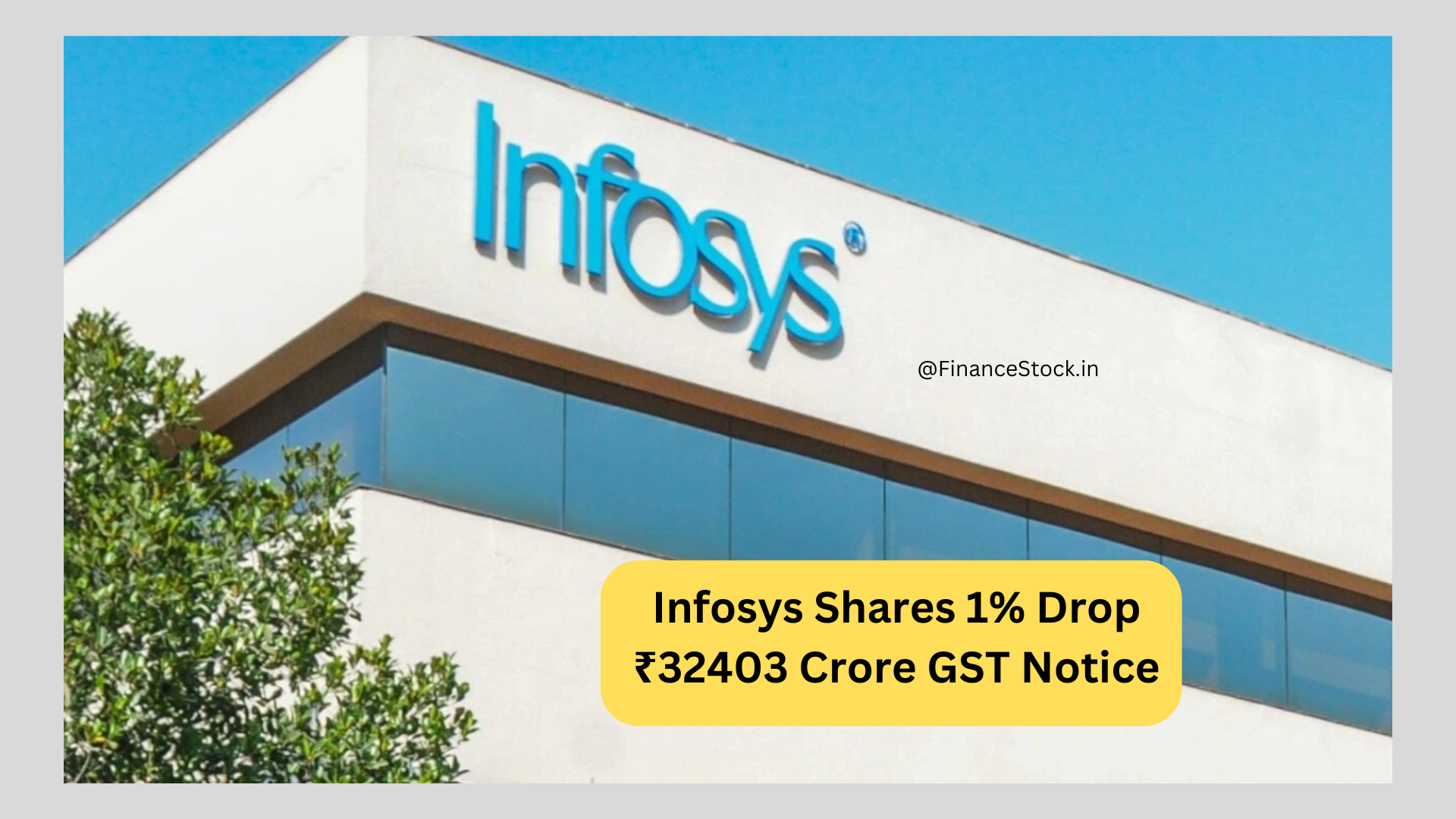Introduction
Infosys, a global leader in technology services and consulting, recently faced a notable challenge with a 1% drop in its share price. This decline was triggered by the issuance of a ₹32,403 crore Goods and Services Tax (GST) notice. Such incidents can create ripples in the stock market and among investors, making it crucial to understand the factors involved and the broader implications.
What Led to the 1% Drop in Infosys Shares?
Infosys has been a consistent performer in the stock market, often seen as a bellwether for the Indian IT industry. However, like all publicly traded companies, it is not immune to market fluctuations. The recent 1% drop in its share price came in the wake of a significant tax notice, which naturally sparked concerns among investors about the company’s financial and legal standing.
Details of the ₹32,403 Crore GST Notice
The Goods and Services Tax (GST) is a comprehensive, multi-stage tax levied on the supply of goods and services in India. It aims to unify the market under a single taxation system. The ₹32,403 crore notice served to Infosys pertains to alleged discrepancies in their GST filings. While the specific details of these discrepancies have not been publicly disclosed, such a large sum indicates serious allegations.
Immediate Impact on Infosys
The stock market, a sensitive barometer for corporate health, reacted quickly to the news of the GST notice. Infosys shares dropped by 1%, reflecting immediate investor concern. This dip underscores the market’s reaction to potential financial liabilities and regulatory scrutiny. Investors often view such notices as potential risks, prompting a reassessment of their positions.
Understanding the GST Dispute
GST compliance can be complex, involving multiple layers of regulation and reporting. Disputes often arise from disagreements over tax calculations, interpretations of the law, or clerical errors. In Infosys’ case, the substantial amount in question suggests either significant oversight or a serious disagreement with tax authorities over the interpretation of applicable laws.
Infosys’ Response to the Notice
In response to the notice, Infosys issued a statement expressing their commitment to compliance and their intent to address the issue promptly. The company has likely mobilized its legal and financial teams to challenge or negotiate the claims, a common practice in such situations. Such responses are crucial in maintaining investor confidence and managing public perception.
Legal and Financial Implications
The legal implications of such a large tax notice can be extensive. Infosys could face fines, penalties, or more severe legal action if found liable. Financially, the company might need to set aside significant provisions to cover potential liabilities, impacting its profitability and financial statements. This scenario could also influence future investor behavior and share prices.
Expert Opinions and Analysis
Market analysts have weighed in on the situation, with many suggesting a cautious approach. While some view this as a temporary setback, others see it as a potential long-term issue that could affect Infosys’ market standing. The consensus, however, is that the company’s robust fundamentals may help it weather this storm.
The Role of GST in India’s Economy
GST is a pivotal component of India’s economic framework, designed to streamline taxation and increase transparency. However, the system is not without its challenges. Compliance issues, disputes, and interpretation of the law can create uncertainties for businesses. Large-scale disputes like the one facing Infosys highlight the ongoing challenges in fully realizing GST’s benefits.
Investor Considerations
For investors, such incidents are reminders of the inherent risks in stock market investments. It’s essential to stay informed and consider the broader implications of such disputes. While a 1% drop might seem minor, it could be a precursor to more significant changes. Diversifying investments and staying updated on company news are prudent strategies.
Comparative Analysis with Other Companies
Infosys is not the first major company to face such challenges. Similar cases have occurred across various industries, from manufacturing to retail. How these companies navigate their legal and financial challenges can offer valuable lessons. Some manage to resolve disputes swiftly, restoring investor confidence, while others face prolonged issues affecting their market value.
Regulatory Environment in India
India’s regulatory environment is complex, with multiple agencies overseeing different aspects of business operations. For multinational companies like Infosys, compliance requires navigating not only local regulations but also international standards. The role of regulatory bodies is to ensure fairness and transparency, but this can sometimes lead to lengthy and complicated disputes.
Infosys’ Corporate Governance and Compliance History
Historically, Infosys has maintained a strong track record in corporate governance and compliance. The company has faced challenges before but has often managed to address them without significant long-term damage. This history suggests a potential resilience in handling the current GST notice, although each case is unique.
Strategic Moves by Infosys
In the wake of this notice, Infosys may undertake strategic moves to mitigate risks. This could include enhancing their compliance processes, engaging with tax authorities to resolve disputes amicably, or even revisiting their financial disclosures to ensure transparency. Such steps are crucial for maintaining investor trust and corporate reputation.
Conclusion
The ₹32,403 crore GST notice issued to Infosys is a significant event, reflecting broader challenges within India’s regulatory and business environment. While the immediate impact on share prices has been limited to a 1% drop, the long-term implications could be more profound. Infosys’ response and future actions will be closely watched by investors, analysts, and other stakeholders. In the dynamic world of business, how a company handles such crises often defines its future trajectory.
FAQs
What is GST and why is it important?
GST stands for Goods and Services Tax, a comprehensive tax on the supply of goods and services in India. It replaces multiple indirect taxes and aims to simplify the tax structure, increase compliance, and reduce tax evasion.
How significant is a 1% drop in Infosys shares?
A 1% drop in share price can be significant, depending on the context. While it may seem minor, it reflects immediate market reactions and can indicate potential concerns among investors about future prospects.
What can investors do in response to such incidents?
Investors should stay informed about the company’s actions and broader market conditions. Diversifying investments and consulting with financial advisors can help manage risks.
How does Infosys plan to resolve the GST issue?
Infosys has committed to addressing the issue and is likely engaging with legal and tax experts to resolve the dispute. The company may also seek to negotiate or challenge the claims made in the notice.
What does this incident mean for the future of Infosys?
While challenging, this incident may not significantly derail Infosys’ long-term prospects. The company’s history of strong corporate governance and financial performance suggests resilience, although much depends on how the situation is managed.
Visit again financestock.in and subscribe for the latest updates llike a Infosys Shares 1% Drop ₹32403 Crore GST Notice

